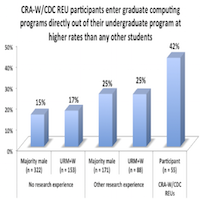
Highlights of the CISE Fiscal Year 2014 Budget Request
On April 10th, the President delivered the Fiscal Year 2014 Budget Request to Congress. The Administration is requesting a total of nearly $7.6 billion dollars for NSF, which is an increase of $593 million, or almost 8.4 percent, over the FY 2012 NSF Enacted level. The Request also includes an increase of $85 million, or 9.8 percent, over the FY 2012 Enacted Level for the Computer and Information Science and Engineering (CISE) directorate, for a total of $950.25 million.










